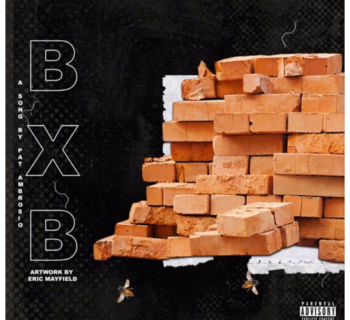"I highly recommend this book to any artist looking to get in the music industry." -Matt O, Founder of Upcoming Hip Hop
Take Care of Your Music Business: Taking the Legal and Business Aspects You Need to Know to 3.0 by John P. Kellogg, Esq. is broken into two parts. The first part is easy to read and talks about the music industry's history and future, what a music production company is, how to be successful in the industry, how to structure your company, record deals, and so much more. The second part of the book breaks down different contracts that you will find throughout your music career whether it be copyrighting your music or signing a deal with a record label. Both parts of the book are very important for artists and producers who are looking to become professionals and successful in the music industry. I personally think the first part of the Take Care of Your Music Business is pure gold. John P. Kellogg lays out the blueprint for setting up your music business (because it is a business) and gives his best advice on how to do it effectively and efficiently. You definitely want to take his advice too; he has been on both sides of the fence. John has/is a part of a successful band, entertainment lawyer, business professor, and speaker.
"Whether you are indie or signed to a label make sure you treat it like a BUSINESS." -John P. Kellogg
One of the most important lessons in this book are the three P's; Powerful Product, Proper Perspective, and Professional Attitude. I can't stress this enough. I always tell my clients that these are the most important aspects to your music career. Let's break each one down into a few examples. A Powerful Product is the most organic ways to be successful in the industry, plain and simple. If you make great music, people will share it and want to support you. If you don't create incredible, unique music you need to have Proper Perspective. Know that your music isn't for the mainstream audience and work hard to connect with your fan base. Remember, you only need 1,000 true fans to make a living off music. So being realistic will not only keep you happy, it will help you stay in your lane. Which brings us to our last P; Professional Attitude. This may seem like common sense but I don't see many artists acting as the professionals do. Being professional can make or break your career even if your music is amazing. Blogs, labels, venues, etc. won't want to work with you if you are unprofessional. And being professional includes showing up on time (and sober), the words you use in conversation and email, knowing how businesses run, copyrighting your music, and so much more.
"The copyright is the most valuable asset in the music business." -John P. Kellogg
John wants to make sure you read that. The copyright is the most valuable asset in the music business. This is because without a copyright, you aren't able to make money from your music. And if you don't make money, you won't be able to survive as a musician. Take Care of Your Music Business breaks down the steps to copyrighting your music and where you can go to do it. If you own your music, every time it's played you get paid. If you don't own your music, you are missing out on additional revenue streams. Ownership is so crucial to your success and it is becoming more important as we move into the post-label phase. Another very important part to the music business is creating an actual company around your brand. I don't want to give too much away from the book so I will just list some bullet points from the book that I find very helpful. If you are serious about your music career, start educating yourself on the industry and pick up this book.
"Memories and emotions drive the music business." -John P. Kellogg
Facts & Figures:
- The profits in the music industry will always bounce back. Every time a new major tech advancement happens, everyone predicts sales will fall but they always bounce back.
- Record label’s earnings peaked in 1999.
- More and more people are consuming music than ever before.
- There has been massive growth in the number of music production companies in recent years which has lead to opportunities for new business.
- Big 3 record labels represent 80% - 90% of record sales. SONY Music Entertainment, Universal Music Group, and Warner Music Group
- 360 Deals are the new norm in the music industry.
- In the music business, it is advisable that all of your agreements to be in writing.

![[Book Review] Take Care of your Music Business by John Kellogg](http://upcominghiphop.net/wp-content/uploads/2015/12/IMG_1249.jpg)
![[Video] "Eat" - Brose Royce](http://upcominghiphop.net/wp-content/uploads/2015/12/Screen-Shot-2015-12-16-at-10.38.08-AM.png)
![[Audio] "CUSTOMS" - KOTA](http://upcominghiphop.net/wp-content/uploads/2015/12/Screen-Shot-2015-12-16-at-10.44.07-AM.png)
![[Audio] Des Brennan - "Drift" (Prod. MFakka)](http://upcominghiphop.net/wp-content/uploads/2016/07/Screen-Shot-2016-08-03-at-10.17.19-AM-350x320.png)

![[Audio] "Warhols" - TruthCity](http://upcominghiphop.net/wp-content/uploads/2016/02/Screen-Shot-2016-02-09-at-5.24.20-PM.png)
![[Photos From Last Night] Not Another Open Mic Presented by Show Your Nice](http://upcominghiphop.net/wp-content/uploads/2016/05/5-6.jpg)

![[Audio] Acapella - "Sick"](http://upcominghiphop.net/wp-content/uploads/2016/09/Capture-130x130.png)



